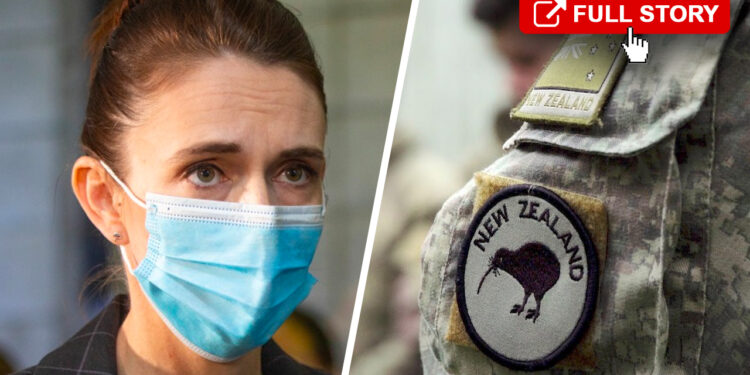In a stunning legal decision, the Court of Appeal in New Zealand has ruled that the mandate for Covid-19 vaccination at workplaces, specifically within the Defence Force, is unlawful. This ruling has significant implications for the country's vaccination policies and raises questions about the legality and proportionality of vaccine mandates.
The court found that while the Defence Force had the authority to include Covid-19 vaccinations in its schedule, the consequences imposed by the mandate were deemed disproportionate. This means that the measures taken by the Defence Force to enforce vaccination, such as disciplinary action or termination of employment, were considered excessive in relation to the purpose of maintaining a vaccinated workforce.
Deputy Prime Minister of New Zealand, Winston Peters, expressed his support for the ruling on social media platform X (formerly known as Twitter). He stated that New Zealand First, his political party, campaigned for the removal of all workplace mandates and ensured its inclusion in their coalition deal with National. Peters sees this ruling as evidence that getting rid of these mandates is the right thing to do.
The Court's decision also highlighted that the Defence Force failed to provide sufficient evidence to justify the strict measures taken to maintain the efficacy of the Armed Forces. The Court directed the Chief of Defence Force to reassess the mandate in accordance with the judgment and to halt any further action until the reconsideration is completed.
This ruling comes after a case was filed in 2022, in which 55 members of the Defence Force refused to receive the Covid jab. At the time of filing, there were approximately 15,000 individuals in the workforce, including civilians. Of those who refused vaccination, 17 members were retained while 22 were discharged.
The significance of this decision cannot be understated. It raises important questions about individual rights and freedoms, as well as the proportionality of vaccine mandates. The ruling sets a precedent for other workplaces and organizations considering mandatory vaccinations, forcing them to reevaluate their policies and potentially face legal challenges.
Despite the importance of this ruling, it has received limited mainstream media coverage. Avi Yemini, an Australian journalist who has faced controversy in New Zealand, pointed out the lack of coverage on social media and questioned why this bombshell ruling was being ignored.
The Court of Appeal's decision has undoubtedly sparked a new chapter in the ongoing debate over Covid-19 vaccinations and mandates. It remains to be seen how this ruling will influence vaccination policies in New Zealand and potentially impact similar mandates around the world. One thing is clear: this is a significant victory for those advocating for individual choice and freedom in the face of vaccine mandates.







